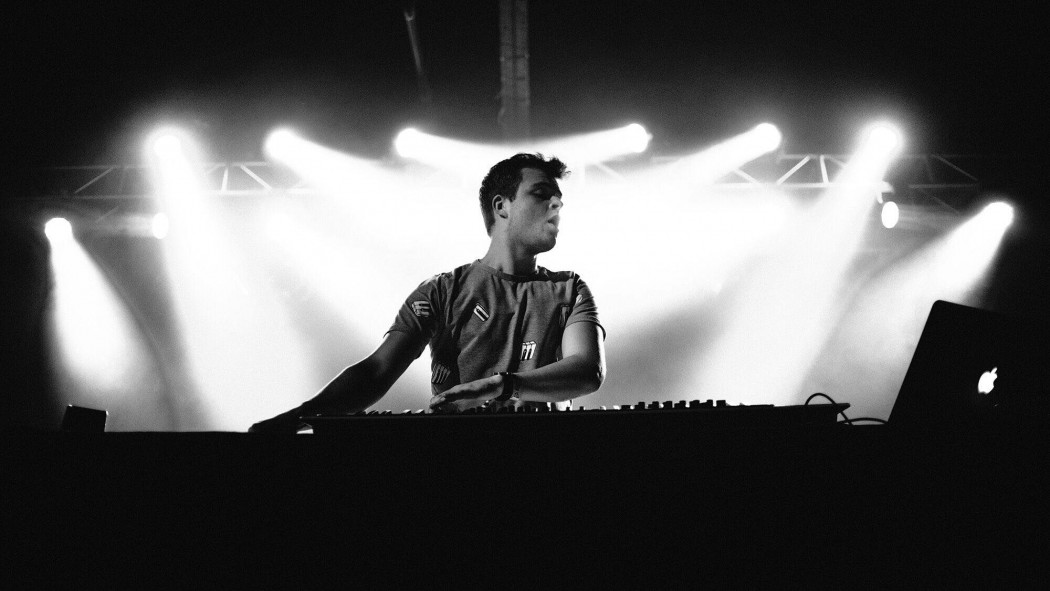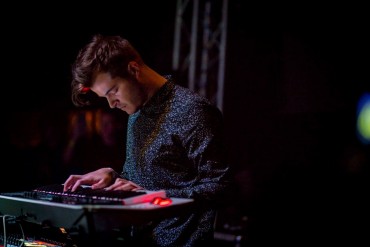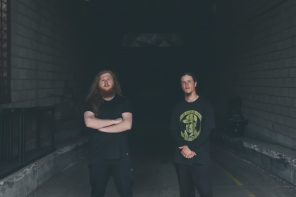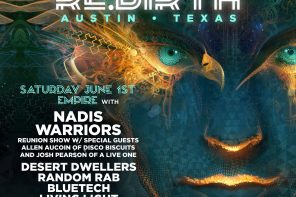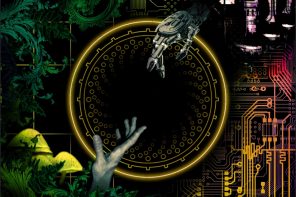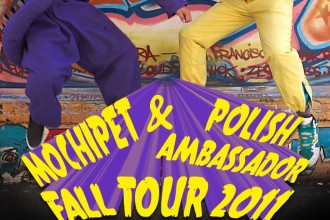Electronic music gets a bad rap. Over the past several decades, music technology has undergone a revolution. The dawning of the digital age brought about new ways to stretch and wiggle noise. Developments in digital audio production software surged forward, allowing musically minded individuals to create sounds from scratch, and write music using only the computer as an instrument. The rocket-ship rise of mainstream EDM was an inevitable consequence of technological progress.
As with most massive trends, things got out of hand pretty quickly. Harsh criticism stating that electronic music lacked a sense of musicality or sincere culture was rampant. Those in the spotlight were touted as ‘button pushers’ and were viewed as panderers instead of artists. The culture surrounding them was infused with vapid hedonism and ignorance. Unfortunately this viewpoint has become pervasive, resulting in a variety of stereotyping unique to the music industry. Musicians composing on electronic platforms were thought to lack artistry, despite doing exactly that: composing. 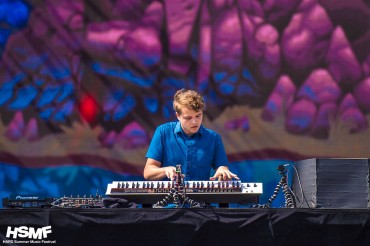
While they may lack a multi-piece orchestra, electronic music producers are, often unwittingly, going through the same process many musical greats have undergone when creating new music. Recently, a trend has emerged that rekindles much of the classical technique and music theory that seemed to have burned away in the initial explosion. Projects like Dirtwire and Govinda have made string instruments popular again. Supersillyus is infamous for songs upwards of 10 minutes that rival John Williams in cinematic style. It’s become increasingly apparent that electronic musicians who have the musical skills want to show them off.
One such artist that has taken classical techniques into a whole new arena is Haywyre. Martin Vogt, who goes by the stage name Haywyre, was raised in Vienna, Austria, a global hub of baroque classical music and musical studies since the Renaissance. He began his musical education before his first memory, studying piano the same way it was taught to the masters. His training and techniques could very well have taken him to a first chair seat in a symphony orchestra, but Martin sought more creative freedom and found it within the realms of electronic music. His innovative presentation, allowing the audience an up close look at his keyboard skills via Go-Pro, creates a stark contrast to the ‘button pushers’ of the big room EDM world. His perfectly curved fingers fly across the imitation ivory, projected on the screen behind him as he plays, showing listeners exactly where years of practice will take you.
Haywyre – “Insight”
Lost in Sound was able to sit down with Haywyre when he rolled through Boston along with Opiou Live Band and Freddy Todd this past Spring to discuss his musical upbringing and how he fell down the rabbit hole of electronic composition.
[LIS] So you’re obviously a very studied musician, tell me about the first time you ever played piano.
[Haywyre] I mean, I can’t tell you because I don’t remember exactly when it was but I’d say the first time I ever played must have probably been around like age 3 or 4. But it was very casual, even the lessons that I was taking were classes my parents enrolled me in. My first lessons were being trained in classical music but my involvement was very not conscious of what was happening. Just like ‘here’s some homework’ kind of deal, and that’s how it felt to me. Except when I could do just whatever I wanted on the piano.
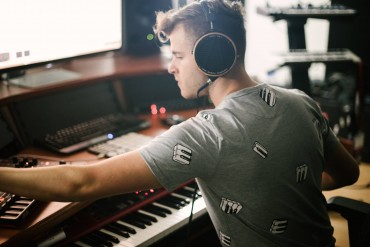 Did you seem to have a natural skill for it or was it something that required some severely intense practice over time to click? Did you have a knack for it right off the bat?
Did you seem to have a natural skill for it or was it something that required some severely intense practice over time to click? Did you have a knack for it right off the bat?
I can’t necessarily speak for whether I had some talent to start off with since I was so young , but I do know that I was having a lot of fun with it. My parents had bought a Clavinova, one of the earliest versions of electronic keyboard that had a lot of pretty advanced capabilities built in. That was pretty cool at the time. It had looping mechanisms, recording mechanisms, and some play along stuff as well. I just kind of gravitated towards that and I had a lot of fun just composing, I guess. That’s what I would do in my free time.
That’s really interesting that that you were exposed to not just classical piano but electronic integration at such a young age. You grew up in Austria during the early part of your life. How do you feel that being involved in such a classical music driven culture influenced your electronic composition nowadays?
I mean, obviously there’s a lot of music history, especially with classical music in Austria. I think it was more the educational approach they have that ended up influencing me. I appreciate classical music now but, especially at the time, it was not where my interests were at all. And there was the homework side of things for me when it came to piano, which was the lessons and learning how to read sheet music properly, practicing my scales, modes, etc. Their teaching methods there are definitely much more formal, a lot more strict, and not so much about ‘what do you want to do’ but ‘this is what people do if they want to play pian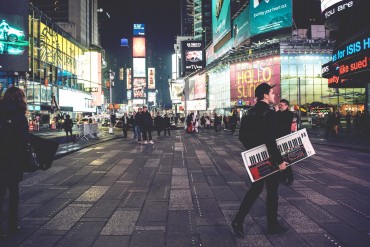 o’. While I lived in Austria that’s basically what was happening. There was my lessons and then there was what I did in my free time, and those were two very different things.
o’. While I lived in Austria that’s basically what was happening. There was my lessons and then there was what I did in my free time, and those were two very different things.
How did you develop the artistic vision that you put forward today? It’s very involved with bass and the popular electronic music that’s happening today, which is disconnected from the Baroque style of classical music associated with Vienna all the time. Tell me a little bit about how you were exposed to that and why it grabs your interest so much.
So, originally the way that I was exposed to electronic music was because I was actually writing metal with my cousin. I had a bit of a phase (laughs)
Don’t we all…
We were looking for software to use to record our guitars, and eventually we came across FL Studio, which is I think the most used DAW in the world, so it wasn’t a surprise that we ended up stumbling into that. It was right around then that we were exposed to the idea that “oh wow, people don’t just record, they also produce sounds in the software too”. Then we started listening to electronic music and really at first it was the two of us just kind of exploring this untapped world together. And it was really fun. We were writing metal, and we were writing electronic music on the side as well.
Just experimenting…
Yeah and eventually we kind of went off, did our own thing, and then we both kept writing independently. I, naturally, having spent a lot of time studying and listening to classical music, and at that point jazz as well; it just ended up influencing what I was doing The metal actually did too. A lot of my earlier albums, it’s hard to tell, but some of them it’s pretty obvious if you’re familiar with that genre of music, you can kind of hear [the influence] like “oh! okay, I see where that came from”
That’s quite the variety to draw from but it’s evident in the techniques that you use to produce. What do you need to take into consideration when you’re producing in regards to live instrumentation and what you’re going to do live versus what’s going to be looped, what’s going to be recorded, etc.
That’s an interesting question because a lot of times when you’re writing music, you don’t necessarily want to be conscious of your limitations. You don’t want to be thinking about “this is what I have to do,” or “this is what I can’t do.” You just want to… Or maybe I’m just speaking for myself, but I think largely speaking, a lot of people that create or are involved in anything creative, prefer to just work with a blank slate and ask “Okay, what can I do with this,” you know? That being said, knowing that I have a certain vision, on some level, that involves me being very heavily involved on an instrumental level, I kind of know what I’m shooting for. I’ve narrowed things down and I’m trying to find a balance between just letting my creativity ride and also keeping in mind that like, “does this make sense with the direction I’m trying to take my project?” That takes a lot of fine tuning. There’s a lot of songs I’ve written that I don’t think I’d write again if I had the same idea today, just because of that narrowing down process.
You’ve traveled quite a bit this year and to some very far corners of the globe. Do you feel like it’s informed your production at all? What tricks are you excited to try out musically, if you haven’t already?
I think in a very general sense, any kind of experience that is unfamiliar is exciting because it’s something new. And to me, with music, largely that’s something that I enjoy quite a bit. To create something that, even if it’s in the grandest scheme of things, what hasn’t been done in the music world, right? As long as it feels new to me and exciting to me, then, I’m doing something right. In the last year I’ve been…. I was in India. I was in Asia multiple times, in a few different countries, besides India obviously, and before that I visited Australia for the first time and I went to Paris for a show in early 2016 as well. There was definitely a lot of international travel. There wasn’t any particular techniques, it was just the experiences as a whole, just absorbing the culture and letting that excitement translate into what I do creatively.
The concept of music in a multicultural realm is really fascinating to me so the fact that because you were classically trained and have been so many places, and that the music you make is translatable to so many places is kind of remarkable. That’s definitely something to be proud of. Do you play any other instruments besides keys?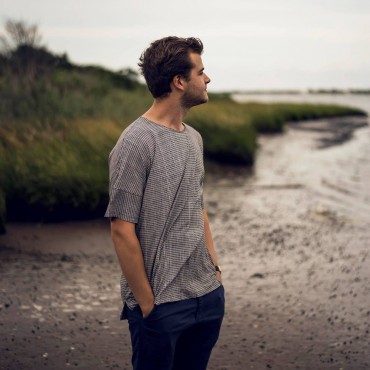
Well, I mentioned before that when I was a metal-head… And I still do listen to metal on occasion… I studied guitar for a year and took a break from piano. So I’m definitely not well versed but I do know a little bit. Plus, you know, the piano is such a good starting instrument for people to branch off of. I feel fairly comfortable approaching pretty much anything percussive, anything that’s very tactile. Wind instruments, not so much. I feel like I have a knack for anything that involves my hands. Or my feet, I guess, in the case of drumming.
What do you feel is the most difficult instrument to learn of those you’ve picked up?
I mean, the only instrument that I play regularly is the piano. The advantage of using a midi keyboard really is that you can play any sound you want, but I can use the muscle memory and the familiarity that I have with piano to play those sounds. So largely at this point there aren’t that many instruments that I’m learning but I’d say the biggest challenge that I’ve ever faced was with a wind instrument. It’s called the Duduk, which is like an Armenian flute. I heard it in a song once and I was like “This is insane! This sounds so cool! It’s like a mixture between a flute and a saxophone!” It’s got this awesome sound and I just bought a really cheap one, on Amazon actually, and it was just the weirdest challenge. I definitely practiced that for a few weeks and then I just kinda gave up.
Coming from such a center of classical music and becoming an electronic musician, does that create any sort of conflict for you as you progress? Do you feel like electronic is where you want to stay? And do you feel like the global vision of electronic music is doing the job it should be in giving credit to the innovation that’s happening there?
A large reason why I enjoyed tapping into the electronic music world is because, if you become a classical pianist there’s a certain framework in place. There’s so many people that have done amazing things in that world already. To even become anything at all, you have to dedicate your entire life to [classical piano]. Instead of doing that and becoming one of the same, I wanted to try to do something different. To me, that’s what the electronic music world was: an opportunity to do something new. I started realizing, after having produced a little bit, that largely people who produce this kind of music aren’t that familiar with performing an instrument or involving any live instrumentation with their performance. It was a really exciting opportunity to meld those two worlds.
Sometimes I do feel limited in what I can present in that regard. As far as I’m concerned, the majority of the electronic music performance world is still very much based on entertainment value. That’s not a bad thing. It’s more just a fact, really. That’s what it’s based off of. There’s a certain culture associated with that, too. Obviously that’s helped [the culture’s] incredible growth to the popularity that it has now. So sometimes I do feel limited by what I want to present to people. Sometimes I want to think of more challenging – even for myself. But, I don’t feel comfortable necessarily presenting that because it might veer too far away from providing something that will keep people entertained. Every musician has their struggle in that regard. You know what you want, and what you think other people want, or what they actually do want. Everyone approaches it differently. Some people are relentless, like “this is what I do”, and some people are very compromising, like “I just want to do this for you.” Everybody does it differently.
I have to say, watching you perform is just magnificent. It’s really cool to see that type of classical upbringing being translated into the modern era and actually seeing someone who is both a composer and a producer in every definition of the word. It’s also wild to actually see you play keys on the big screen. Do you have anything upcoming that you want to let our readers know about?
I’m taking things step by step at the moment. I have a lot of work that I’ve done. I think one of the things that I really do not like when artists go full time or gain popularity is that sometimes they create music just for the sake of creating it. They have to stay relevant, stay in an upwards trajectory. That can actually put you in the opposite position that you want to be in creatively, mentally. So what I’m trying to do right now, I definitely felt a lot of that pressure after having gone full-time. I haven’t been full-time for too long, like 2 years, 2 ½ years. Having released some music, I felt a little bit pressured to release more. I’m now trying to take my time, and make sure I understand what it is really that I want to do with my music. It has been more than a year actually at this point since my last release, and I’ve started more than 70 ideas that are just sitting on my hard drive. Some of them, I’ve come far enough along to be able to test out live. But still the question remains, “is this really what I want to do?” It ties into what we were talking about earlier, too. Just narrowing things down more and more. Sometimes that can make things more challenging too, but for the better. I’m confident that I’ll be making some stuff that I’m really happy with this year. I wish I could say more because there’s always exciting stuff going on but that’s pretty much all I got.
I’m excited to see the light bulbs go off as you figure it all out, that’s really exciting. Thank you so much. Really appreciate you taking the time.
Check out Haywyre at this years Bonaroo Music Festival (June 8, 2017) and Sonic Bloom Music Festival (June 17, 2017) or online at the following links:

